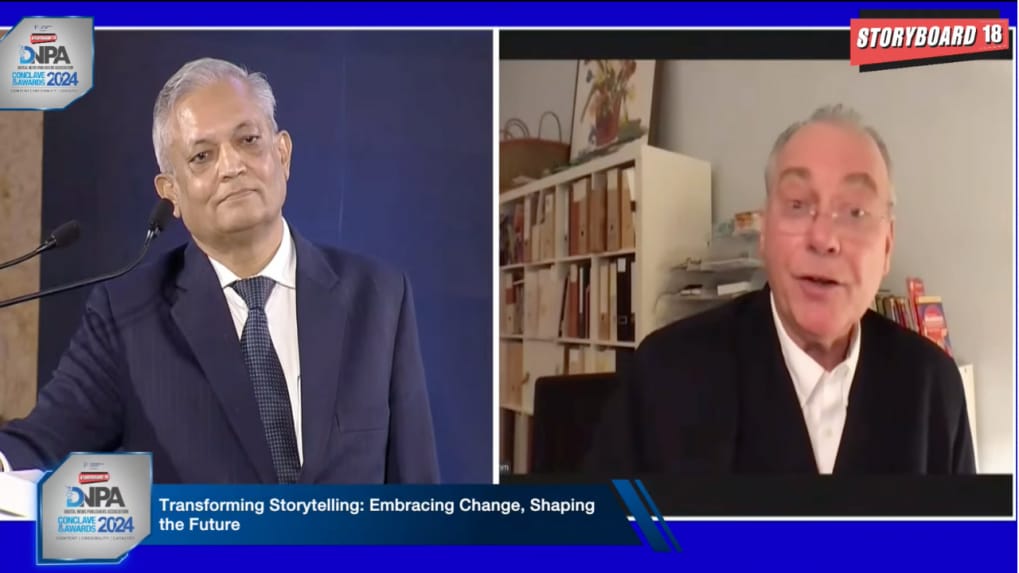Gaming
From Valsad to SC: Justice Pardiwala holds fate of $3 billion gaming industry, 2 lakh jobs

The DNPA Conclave and Awards 2024 has kicked off in Delhi, with a focus on the future of digital media in a time of AI-led transformation and the relationship between news publishers and Big Tech platforms.
The conclave opened with an address by Tanmay Maheshwari, Chairman, Digital News Publishers Association (DNPA) and Managing Director, Amar Ujala and a stimulating discussion featuring Rajeev Chandrasekhar, Minister of State, Electronics and Information Technology, Government of India. The minister spoke about how India plans to lead the global race by adopting a digital first approach.
The next session, on understanding how to overcome the disparity of bargaining power featuring Florian Nehm, senior advisor, Axel Springer SE, Public Affairs along with Anil Malhotra, head, public and regulatory affairs, Zee Entertainment Enterprises Limited and president, DNPA involved some rather interesting talk points.
The situation of disparity in bargaining power is exactly the same as India in other countries like Europe, USA, Canada and Latin America. Nehm said, “India is talking about the same topics and warrants the same set of regulations as the rest of the world.”
The challenge lies in the character of publishers. “Publishers are ego-driven. This is fantastic because they prefer to publish and not bring their money to banks. This is the salt and pepper of democratic societies,” said Nehm. The first challenge is to unite the publishers, to bring publishers under one umbrella, under one goal. “It took a lot of time, but the associations agreed to take this ahead,” added Nehm. The goal is to come under one joint man management. This is not easy because a lot of publishers wish to negotiate their rights for themselves.
“The more united you are the better the journalism…..The invitation is to India to start first and we will learn from you,” added Nehm.
There are similar situations in telecom and broadcasting as well. Chandrashekhar in an earlier session said that Indian government doesn’t want to come in and arbitrate any of these situations. They simply want to ensure that the law is being followed in this case. This is because the government doesn’t believe that its role is arbitration in this matter.
“A simple law that suggests that there is a ‘must carry’ obligation upon news platforms and they haver to agree to free fair, transparent and non-discriminatory revenue with the news providers. The onus of providing these terms is on the platforms,” said Malhotra. There is a possibility that this can solve problems.
“Democracies need free and diverse press to curate fact-checked content. Where there is no economic viability, there are news deserts,” said Nehm. This leads to misinformation and fake news.
There is a relationship between security, democratic stability and diverse, economically independent curated news. It will require a lot of current affairs work to bring these issues forwards.
Big-ticket buying decisions now demand more than just logic and product specs – they require trust, emotional connection, and brand stories that resonate.
Read MoreThe Online Gaming Bill 2025 imposes severe penalties, allows warrantless search and seizure, and empowers a central authority to regulate the digital gaming ecosystem. It is expected to disrupt platforms, payment systems, and advertising in the sector. Here's all you need to know about the bill.